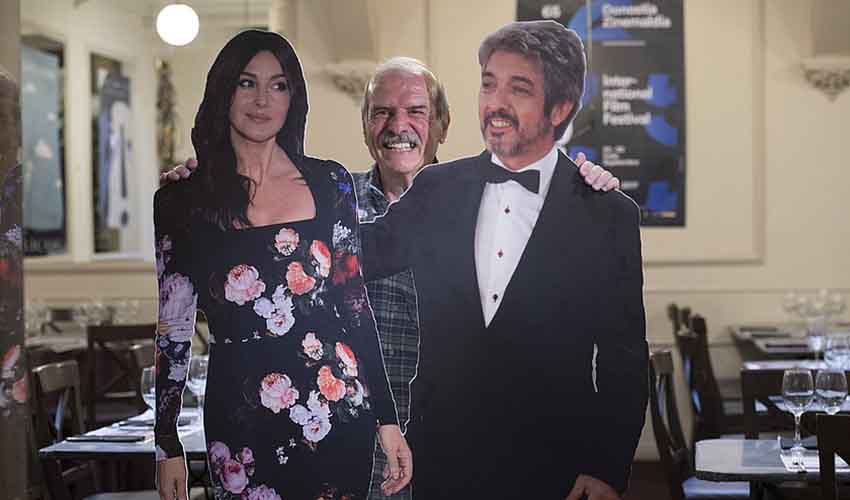Pello Zubiria/Donostia-San Sebastian. Carlos Gabilondo (Buenos Aires, 1950) and Norma Carrizo (Bueno Aires, 1950) arrived from Argentina to Donostia a few days ago to participate, for the first time, in Zinemaldia, and to attend the Zinemira section. They were both moved and touch by the welcome that they received here. “It is very exciting,” Carlos said.
You always said that your fondness for watching movies and discussing them came from the time of the dictatorship.
Yes, that’s true. We created a project in Argentina called “Cineclub Film Debates,” it was 1982 close to the end of the dictatorship. There were still some films that were prohibited and the cineclub allowed us the opportunity to discuss titles that couldn’t be seen elsewhere. It lasted for about four years, and somehow, it could be said that it was the forerunner of what is today the Traveling Basque Film project.
When did you become interested in Basque film?
Ten years ago I became more aware of the Basque culture and about six months later, i realized that Basque film could be an important way for Basques in the Diaspora to get closer to our culture. In fact, it is a way of expression that unites different art forms, and can provide information to Basques in the Diaspora on their ancestors, towns, etc. We began it at Euskaltzaleak, the Euskaltegi (Basque language school) in Buenos Aires with a monthly series that later expanded to other towns and places in Argentina. We began by contacting various euskal etxea, there are more than 100 in the country, always with an entirely independence and being a non affiliated and free project: we do not receive any institutional support, everything falls on us, and so we need to prepare everything well.
What are the screenings like?
We try to contextualize each film, not just show it. At each session we introduce the director and we show a short from Kimuak followed by the film. We choose titles that we think will be interesting to the community, and as much as possible, in Basque with subtitles, keeping in mind that film production in Basque increased after 2005. We have also expanded to show films outside of Basque clubs. We thought it was the next logical and interesting step because then we reach people and places who don’t know anything about the Basques and their reality. And when I refer to spreading our culture, I am talking about Basque culture, since I also feel Basque. Since we accompany the screenings with a debate, it is the best time to offer an opinion, comment and share topics. Besides that, we also like to be an activity that shakes the conscience of the Basque clubs.
What films have you shown this year?
We have dedicated the beginning of the year to Zerutik sua dator (It’s Raining Fire), on the occasion of the 80th anniversary of the Bombing of Gernika. The memory of the bombing is very present in the collective imaginary of the Basques in Argentina; the stories and experiences that were transmitted by our parents and families, and ancestors have touched a lot of people.
Thousands of kilometers will result in thousands of stories
That’s for sure. And many stories deserve to be saved. One comes to mind. We were showing The Good News by Helena Taberna in Chivilcoy, a town that is about 200 kilometers from Buenos Aires. The film tells the story of a priest, Mariano Ayerra, that was parish priest in Alsasua (Navarre) from 1936-1939. This priest, after the war, went to South America and died in Argentina. During his stay, the priest wrote a book I am not Ashamed of the Gospel (from my parish). In Chivilcoy, we were watching the moving when an audience member stood up and went home. Shortly after, he came to us with an autographed copy of the book dedicated to a family member. It was something unexpected and moving.
If you could make a movie, what would you tell?
The interest, caring and admiration that the Basques have in the Diaspora for what is Basques. This is very evident, for example, when the Basque Festival takes place in Buenos Aires. It is very striking, it occurs to me, the effort that people above the age of 60 put forth for their clubs. They donate, and not just a little bit, from their own pockets, in a context where the help from the Basque Government has been reduced while expenses remain high….It would be very nice to tell the story of the people in the Diaspora, from town to town, rescuing stories about people who have truly supported the Basque culture during their entire lives.
(Originally published in Berria, translation done by EuskalKultura.com)






 Send to a friend
Send to a friend Add comment
Add comment








